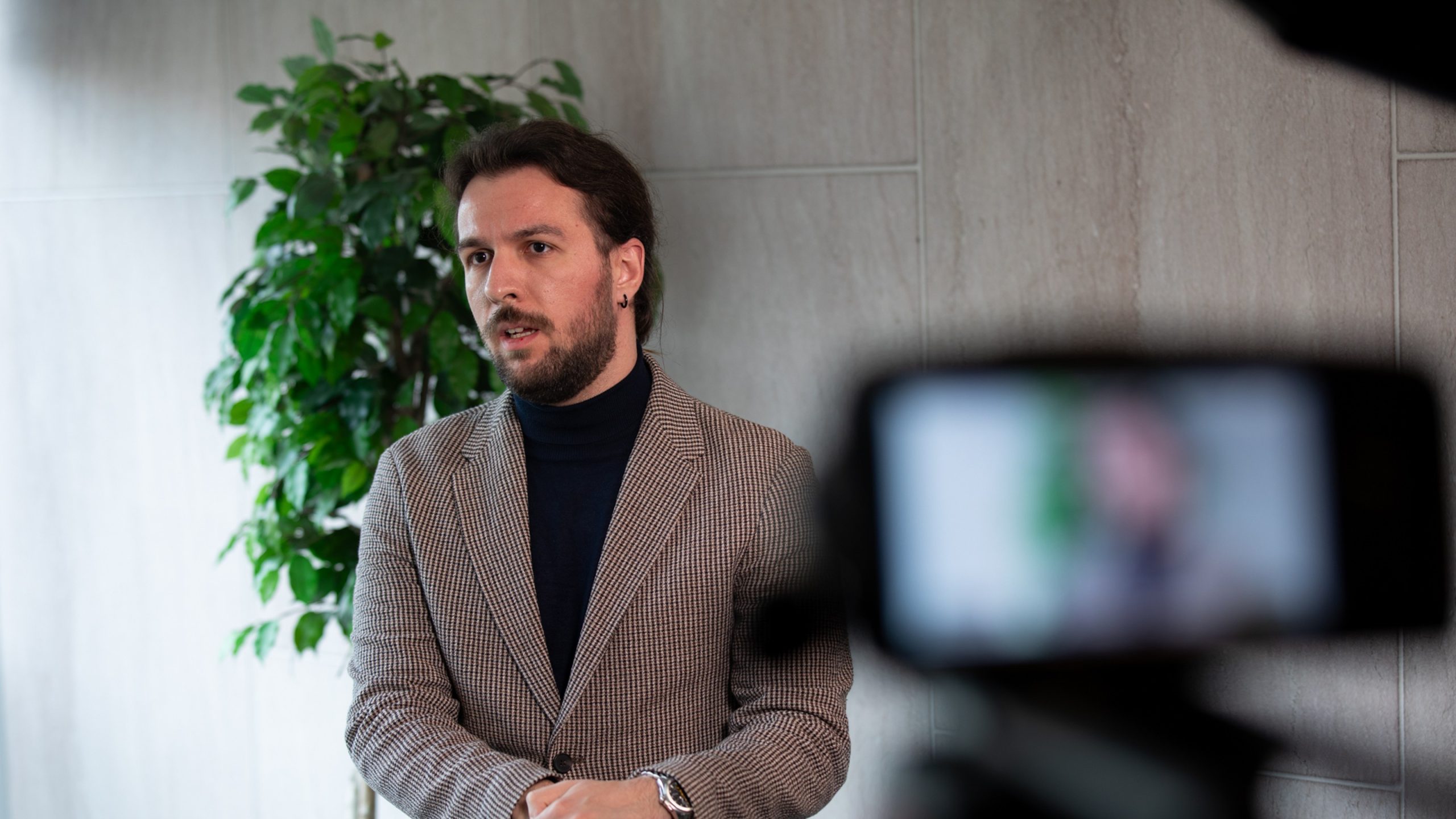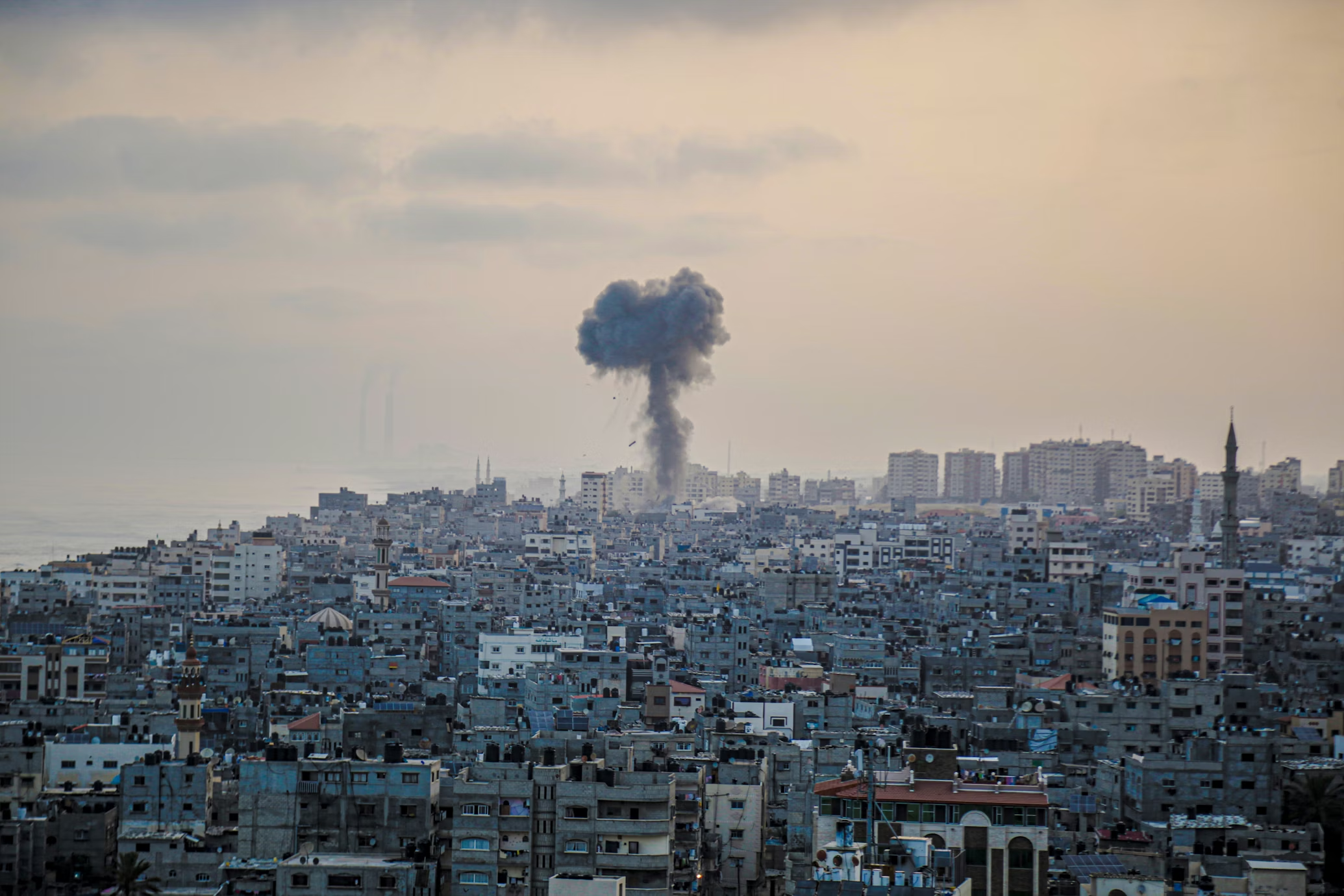Europe’s shift before the storm
At the end of July, the European political scene was in turmoil over the Palestinian issue. The acute famine—especially among children in Gaza—as well as Israel’s announcements regarding the expansion of settlements forced European politics, known for its inflexibility on this issue, to take highly symbolic political action, with the common elements of distancing themselves from Washington and increasing pressure on Benjamin Netanyahu.
On July 23, French President Emmanuel Macron informed German Chancellor Friedrich Merz of his intention to recognize a Palestinian state in September. The very next day, he announced it publicly, defining this announcement as an act of “commitment to a just and lasting peace.” At the same time, in a post on X, he stressed that peace requires “an immediate ceasefire, the release of all hostages, and massive humanitarian aid.” Politically, Macron’s statement set the framework for the recognition of Palestine in the context of a long-lasting sustainable peace, subject to the conditions of the demilitarization of Hamas and the full recognition of Israel, factors that contribute “to the security of all in the Middle East.”
A week later, on July 29, Maltese Prime Minister Robert Abela announced that the country would proceed with the official recognition of a Palestinian state at the UN General Assembly in September. The move, which comes after weeks of political pressure from both the ruling party and the opposition, is based on the country’s historically pro-Palestinian stance and its steadfast support for a two-state solution. In doing so, Malta joins Ireland, Norway, and Spain, which had already taken similar steps in May.
Macron’s decision, the first by a G7 member country, was interpreted as twofold: on the one hand, to put pressure on European allies, especially the United Kingdom, Germany, and Italy to return to the two-state solution, and on the other hand, to send a clear message to Tel Aviv that it is paying the political price for the genocide in Gaza. The reactions of the US and Israel were along the same lines, with US Secretary of State Marco Rubio describing the move as «reckless decision». Netanyahu once again spoke of the existential threat to Israel- with France advocating to this direction- referring to a «launch pad to annihilate Israel».
The decision of the French President seems to have partially achieved its goal, acting as a catalyst for developments in London. Prime Minister Keir Starmer announced on July 30 that Britain would recognize a Palestinian state in September. This would be under the conditions, that Israel did not agree to a ceasefire and committed to a peace process that would lead to a two-state solution and refrained from any possible annexation of West Bank territories, conditions that the British government knows Netanyahu categorically rejects. Israel’s stance is understandable given its actions to date, but even more so after the Knesset passed a non-binding motion a few days earlier, with 71 votes in favor and 13 against, a non-binding proposal to annex the occupied West Bank, including the Jordan Valley and the settlements. Despite its symbolic nature, this move by Netanyahu’s coalition was seen by the Palestinian Authority as a “direct attack on the rights of the Palestinian people” and undermining any prospect of a two-state solution. The Palestinian Foreign Ministry denounced these unilateral actions as a flagrant violation of international law and a reinforcement of an “apartheid regime” in the West Bank.
The British government’s decision to frame recognition as a matter of choice for Israel certainly gives the impression of political influence rather than a simple gesture of solidarity. Domestically, however, pressure had reached a breaking point: ministers and MPs, even from within the government, called for immediate recognition, warning that “an inalienable right cannot be subject to conditions.” This climate is fueled by the image of humanitarian disaster in Gaza, with the UN talking about “spreading famine” and food security experts warning that “the worst-case scenario of famine is already unfolding.” This famine in Gaza has not arisen ex deo, but is the product of conscious political choices. Since the start of the war, Israel has imposed a complete siege on Gaza, cutting off water, food, fuel, electricity, telecommunications, and constantly targeting journalists, going way beyond any limits to kill people who were reporting on what was happening inside the walls.
Even now, deliberate food deprivation is affecting Palestinian journalists, who work under blockade, constant displacement, and communication blackouts, with organizations such as the CPJ warning that, unless immediate action is taken, “there will be no one left in Gaza to tell the story.” In the same tragic vein, on August 10, 2025, Israel launched a targeted attack on a tent housing journalists outside al-Shifa Hospital in Gaza, an attack that claimed the lives of four Al Jazeera employees and two freelancers. This constitutes a flagrant violation of international humanitarian law, which, in Article 79 of Additional Protocol I to the Geneva Conventions, explicitly recognizes that journalists covering armed conflicts are civilians and protected from attack. This attack was the first attack by Israel on journalists that was recognised as such by Israel, with the caveat, of course, that their basic recognition by Israel was that they were terrorists.
Exactly, despite Israel’s repeated accusations that Anas al-Sharif led a “Hamas terrorist group,” no independent and reliable evidence has been presented, while organizations such as RSF, CPJ, and Amnesty International characterize the accusations as baseless and his execution as a war crime. The evidence fits into a recurring pattern, where Israeli officials target journalists with unsubstantiated accusations before killing them, as in the case of Shireen Abu Akleh in 2022, for which there has also been no accountability.
#Gaza: We condemn the killing by Israeli military of 6 Palestinian journalists by targeting their tent, in grave breach of international humanitarian law. #Israel must respect & protect all civilians, including journalists. At least 242 Palestinian journalists were killed in Gaza… pic.twitter.com/Y6nTHcHQ2B
— UN Human Rights (@UNHumanRights) August 11, 2025
Since the war began on October 7, 2023, nearly 270 journalists and media workers have been killed, the majority of them Palestinians, while international media remain banned from entering Gaza, depriving the global public of critical evidence of possible violations of the laws of war. The absence of meaningful and proportionate international sanctions not only undermines the protection of journalists, but also sets a dangerous precedent that threatens the very possibility of documenting war crimes.
Moreover, previous statements by senior Israeli ministers, often repeated with dehumanizing rhetoric and emphasizing the need to prevent “even a gram of humanitarian aid” from entering, reflect the deliberate nature of this policy. From humanitarian organizations to the UN, everyone has documented the systematic use of hunger as a method of warfare, with the Prosecutor of the International Criminal Court having brought charges of war crimes. As famine expert Alex de Waal notes, food deprivation “You can’t starve anyone by accident. It has to be deliberate and sustained”.

